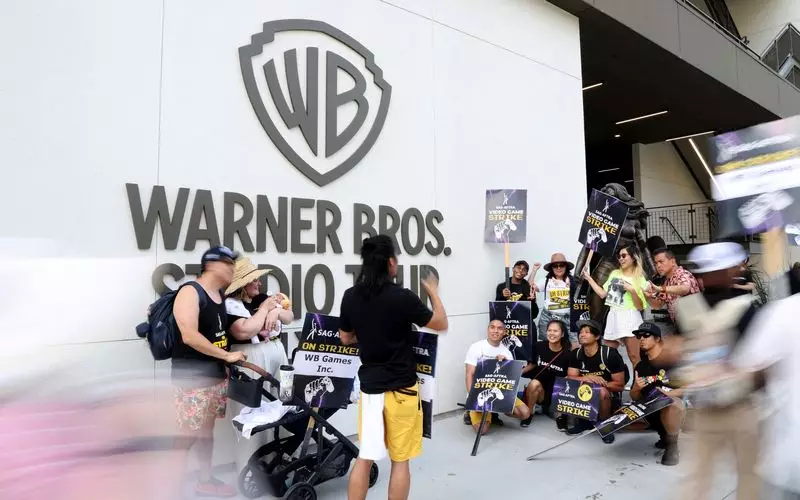In Burbank, California, video game voice actors and motion-capture performers took a stand by holding their first picket in front of Warner Bros. Games. The key concern for these performers is the threat that artificial intelligence poses to their professions. According to Leeanna Albanese, a voice actor and strike captain, the models used in the industry have been trained on their voices without their consent and without any compensation.
The recent strike by video game voice actors and motion-capture performers came after failed labor contract negotiations that were focused on AI-related protections for workers. This strike is just one in a series of labor disputes in Hollywood, as union writers and actors also marched on picket lines last year citing similar concerns related to AI replacing human elements in interactive projects.
Major video game companies involved in the negotiations, including Activision Productions, Electronic Arts, Epic Games, Take-Two Interactive, Disney Character Voices, and Warner Bros Discovery’s WB Games, are now faced with the repercussions of the strike. While some analysts believe that companies like Electronic Arts and Take-Two may be able to mitigate the effects of the strike due to their in-house studios and lengthy game development cycles, the broader impact on the industry remains to be seen.
The strike has also sparked a larger call to action across Hollywood, with industry professionals advocating for legislation that can protect them from the risks posed by AI. The NO FAKES Act, a bipartisan bill in Congress, aims to make it illegal to create an AI replica of someone’s likeness and voice without their permission. This bill has garnered support from various industry organizations and influential figures in entertainment, politics, and beyond.
Leeanna Albanese emphasized the importance of a national law, such as the NO FAKES Act, to protect the identities and personhood of performers on a larger scale. From Grammy-winning artists like Taylor Swift to Vice President Kamala Harris, prominent figures have expressed concerns about the potential misuse of AI technology, particularly in creating deep fakes. Duncan Crabtree-Ireland, the national executive director of SAG-AFTRA, highlighted the need for comprehensive protection against the abusive use of AI across all sectors.
The ongoing labor disputes in the video game industry underscore the growing impact of artificial intelligence on voice actors and motion-capture performers. As technology continues to advance, it is essential for stakeholders to prioritize the protection of workers’ rights and identities in the face of AI-related challenges. The collective advocacy for legislative measures like the NO FAKES Act reflects a shared commitment to safeguarding the integrity of the entertainment industry and beyond.

